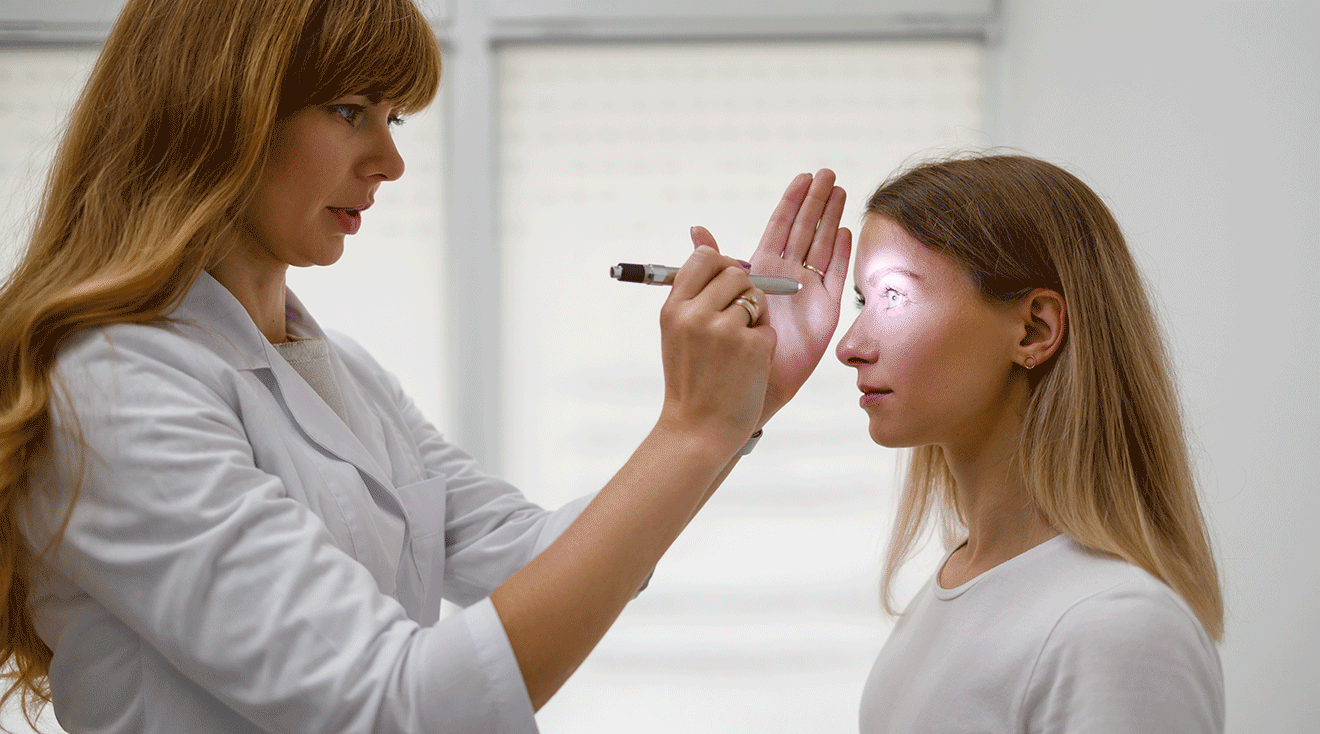Why You Might Experience Some Blurry Vision in Pregnancy
It’s normal for vision to change over time. But if you’re suddenly unable to see as well as you were pre-pregnancy, it’s natural to have some questions and concerns. The reassuring news is that blurry vision in pregnancy is fairly common and usually not a cause for major concern. So what causes vision changes in pregnancy, and what can you do if your line of sight is falling short? Read on for the full lowdown.
Yes, vision changes in pregnancy are normal, although not everyone will experience them. In fact, most pregnant people won’t notice any difference, says Jennifer Fogt, OD, an assistant professor in the College of Optometry at The Ohio State University.
Of course, that’s no consolation if you are experiencing blurry vision in pregnancy. The good news? This is considered a temporary problem. In other words, it should go away once baby is born, or potentially before that. It’s also important to know that while most vision changes in pregnancy are no big deal, others can be a sign that something more serious is going on. (More on that in a moment.)
Hormones, which cause many of the symptoms you may experience in pregnancy play a big role here. “Hormones can change the thickness and curvature of the cornea, which can cause changes in the prescription needed to see well,” Fogt explains. “This means that you could have some mild blurriness.” These shifts are typically temporary and tend to be more common as pregnancy progresses.
Moreover, Christine Greves, MD, a board-certified ob-gyn at the Winnie Palmer Hospital for Women and Babies in Orlando notes that you don’t always produce as many tears in pregnancy as you otherwise would. “You’re retaining more fluid when pregnant, and because you’re not tearing, that can affect vision,” she adds.
That said, blurry vision in pregnancy can also be a sign of more serious conditions, notes Bavand Youssefzadeh, DO, an ophthalmologist in Los Angeles. It could point to preeclampsia, a serious blood pressure condition that develops during pregnancy or gestational diabetes, a condition that occurs when the body can’t regulate blood sugar properly during pregnancy).
If you were diagnosed with diabetes or high blood pressure before you became pregnant and notice you have major changes in your vision during pregnancy, Fogt recommends contacting your doctor: “People who have diabetes or high blood pressure before pregnancy, or those who develop gestational diabetes or preeclampsia while pregnant, can develop retinal problems which aren’t temporary and should be examined and treated to prevent further progression.”
You can develop blurry vision at any point in pregnancy, Youssefzadeh says. However, it’s more common as the weeks and months advance. “The hormonal changes in vision tend to happen more in the last trimester,” Fogt adds.
Additionally, complications that are linked with vision changes, like preeclampsia and gestational diabetes, tend to crop up later in the second or third trimester.
Being able to see clearly is important, which is why doctors recommend seeing an eye doctor if you’re dealing with blurry vision in pregnancy (or any time, really!). “If something has changed, get an eye exam to find out why,” Fogt says. “It isn’t difficult and can give you peace of mind.” And, for the record, it’s completely safe to get an eye exam during pregnancy.
Fogt notes that some people will recommend that you avoid buying new glasses during pregnancy because of the chances your prescription will change again after baby is born, but she stresses that you still need to make sure you can safely see in the meantime. “If you have a change, it isn’t likely to be much,” she says. “You need to take care of your eyes and yourself to take care of a baby.”
While your eye doctor can handle hormone-related vision changes, you’ll want to contact your ob-gyn or midwife if you suspect that your blurry vision is related to an underlying health condition or pregnancy complication.
According to experts, some suspicious symptoms to watch for include:
- Tingling or numbness in your hands or feet
- Excessive thirst
- Frequent urination
- Sores that heal slowly
- Excessive fatigue
- Severe, persistent headaches
- Temporary loss of vision, light sensitivity or double vision
- Nausea or vomiting in mid- or late-pregnancy
- Upper abdominal pain
- Low urine output
- Shortness of breath
- Sudden weight gain
- Swelling in your face and hands
It can be tough to determine on your own if your blurry vision is a normal pregnancy symptom or sign of something that needs to be addressed. So it’s always a good idea to be evaluated by your doctor. “If you notice, there’s something that just isn’t right about your body, that is what we’re here for,” Greves says.
Please note: The Bump and the materials and information it contains are not intended to, and do not constitute, medical or other health advice or diagnosis and should not be used as such. You should always consult with a qualified physician or health professional about your specific circumstances.
Plus, more from The Bump:
Jennifer Fogt, OD, is an assistant professor in the College of Optometry at The Ohio State University, where she also received her doctor of optometry degree.
Christine Greves, MD, is a board-certified ob-gyn at the Winnie Palmer Hospital for Women and Babies in Orlando. She earned her medical degree from the University of South Florida College of Medicine.
Bavand Youssefzadeh, DO, is an ophthalmologist and laser eye surgeon in Los Angeles. He obtained his medical degree at the College of Osteopathic Medicine of the Pacific in Pomona, California.
Cleveland Clinic, Blurry Vision During Pregnancy, May 2022
Learn how we ensure the accuracy of our content through our editorial and medical review process.
Navigate forward to interact with the calendar and select a date. Press the question mark key to get the keyboard shortcuts for changing dates.




















































